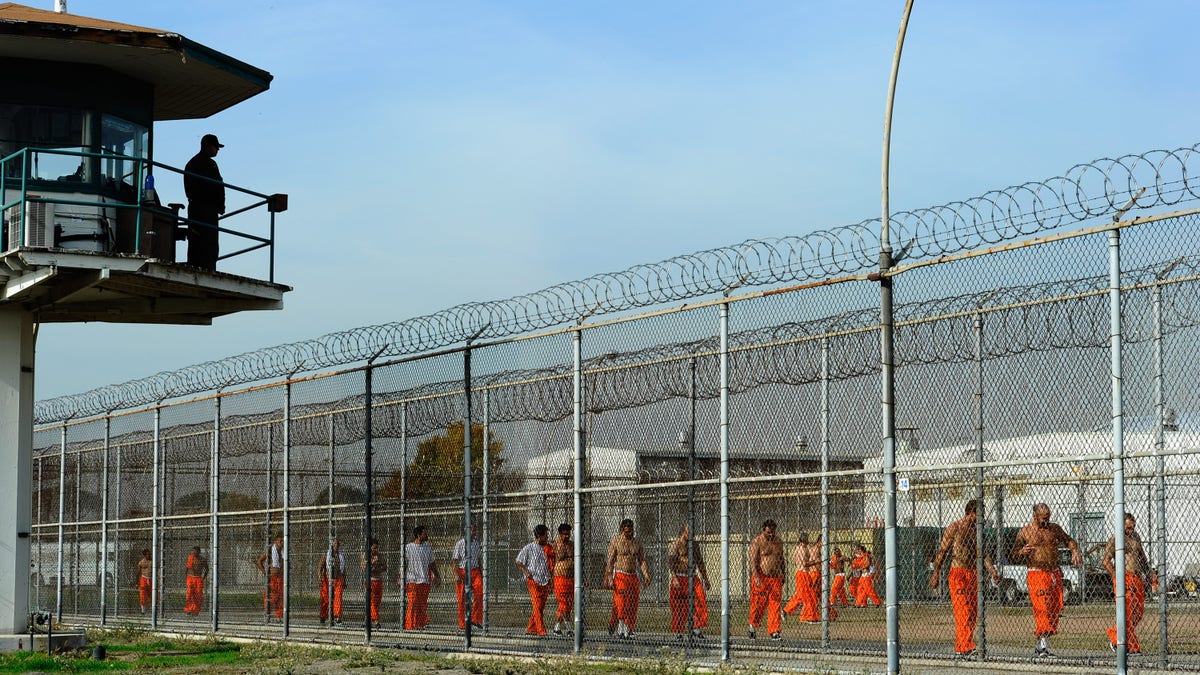
Inmates exercise at Chino State Prison in Chino, California. (2010 Getty Images)
Nearly 1500 inmates continue to refuse food in 15 California prisons to protest the state's solitary confinement program for gang leaders.
Gang convictions are prevalent among Hispanic inmates, who make up 41 percent of California’s prison population.
According to Department of Corrections and Rehabilitation, California currently holds 4,527 inmates isolated from the general prison population in so-called Security Housing Units.
The strike, launched on June 8, is the largest of three hunger strikes protesting conditions in California prisons in the last two years. After the earlier, smaller strikes, the Department of Corrections began its program giving gang members a way out of the isolation units.
About half of the nearly 400 inmates considered so far have been or will be let out of solitary confinement, while another 115 are in a program in which they can work their way out of the units.
But the inmates want a quicker way out of the isolation program at Pelican Bay prison, near the Oregon border, and at three other maximum security prisons around the state.
The British newspaper The Guardian reported Friday that prison guards are trying to break the hunger strike by blasting cells with cold air, confiscating legal documents and, in one case, banning lawyers.
Citing legal representatives and relatives of the inmates, the paper went on to say that the health of the men is being put at risk ― especially that of smaller, thinner prisoners with little body fat.
"They are upping the ante in terms of cold. It's clearly a tactic to make everything uncomfortable and in essence retaliate for the hunger strike," said to The Guardian Anne Weills, a civil rights attorney who visited Pelican Bay prison this week.
"They are freezing, these men. I could see them shivering in front of me. I had two sweaters on and I was freezing," she added.
Terry Thornton, a spokesperson for the CDCR, denied the claims and insisted that the temperature at Pelican Bay's segregated units is between 72 and 73 degrees.
But Alfred Sandoval, one of the inmates in solitary confinement, said in a postcard to his wife guards had "turned the blowers on."
"It is definitely happening, it's retaliation," said Kamau Walton, a member of Prisoner Hunger Strike Solidarity Coalition, as quoted by The Guardian.
The Associated Press contributed to this report.
Follow us on twitter.com/foxnewslatino
Like us at facebook.com/foxnewslatino








































